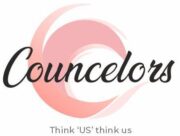Contact Us
Your Path to Success : Key Guides and Tips
- Visa Application
- Important Visa Interview Questions
Everything you need to know about securing your student visa.
- Initiate the visa application process as soon as you receive your acceptance letter.
- Ensure the DS-160 form is filled out accurately.
- Thoroughly prepare for your visa interview.
- Maintain positive body language and present yourself confidently during the interview.
- Be well-informed about your financial situation and plans.
- Understand the details of your chosen university, program, and your future plans.
Prepare effectively with these commonly asked interview questions.
- What makes the US your choice for higher education?
- Which university are you planning to attend?
- How many universities did you apply to?
- What attracted you to this particular university?
- Why did you choose this degree program?
- How will this degree benefit your career goals?
- What are your plans after completing your degree?
- Who is funding your education?
- What are your parents’ occupations?
- What is your current qualification and current occupation?
Maximize Your Chances of Acceptance
Apply Early
Start your application process well in advance.
Shortlist Universities
Choose 4–5 universities that match your credentials and goals.
Complete Applications Early
Submit all required documents as soon as possible preferably during the early application deadlines.
Craft Original SOPs and Essays
Ensure your Statements of Purpose and essays are unique and reflect your true self. Maintain originality in your statements and essays.
Secure Strong LORs
Take LOR’s from your teachers/ professors those who know you well and can write good about you.
Maintain Correspondence
Keep in touch with your chosen universities for updates and additional requirements.
Not sure what you are looking for? Fill in the details to get a call-back.
Frequently Asked Questions (FAQ)
How long does the US visa process take?
SAME DAY DECISION
Can I work while studying in the US?
Yes, international students on F1 visa can work up to 20 hours per week during the academic term and full-time during holidays.
What is the difference between F1 and J1 visas?
The F1 visa is for students enrolled in an academic program or English language program. The J1 visa is for students who are part of an exchange program.
How can I find accommodation in the US?
You can find accommodation through your university’s housing office, online rental websites, student forums, and local listings. Universities often provide on-campus housing options as well.
What should I do if my visa application is denied?
If your visa application is denied, you will be given a reason. Address the issue, you can reapply for your student visa, improve upon your profile and make some changes while reapplying for your VISA.
How do I apply for scholarships in the US?
Research, merit, sports and many more scholarships are offered by your chosen university, Ensure you meet the eligibility criteria and submit all required documents by the deadlines.
What are the costs associated with studying in the US?
Costs include tuition fees, accommodation, textbooks, health insurance, and living expenses. These can vary significantly depending on the university and location. Make a budget to manage your finances effectively.
How can I prepare for the visa interview?
Prepare by understanding your visa type, reviewing your application and supporting documents, practicing common interview questions, and being clear about your study plans and financial situation. Present yourself confidently and honestly.
What should I know about health insurance for international students?
Most universities require international students to have health insurance. You can usually purchase a plan through your university or choose a private insurer. Make sure the plan covers essential medical services, including emergencies and hospitalization.
